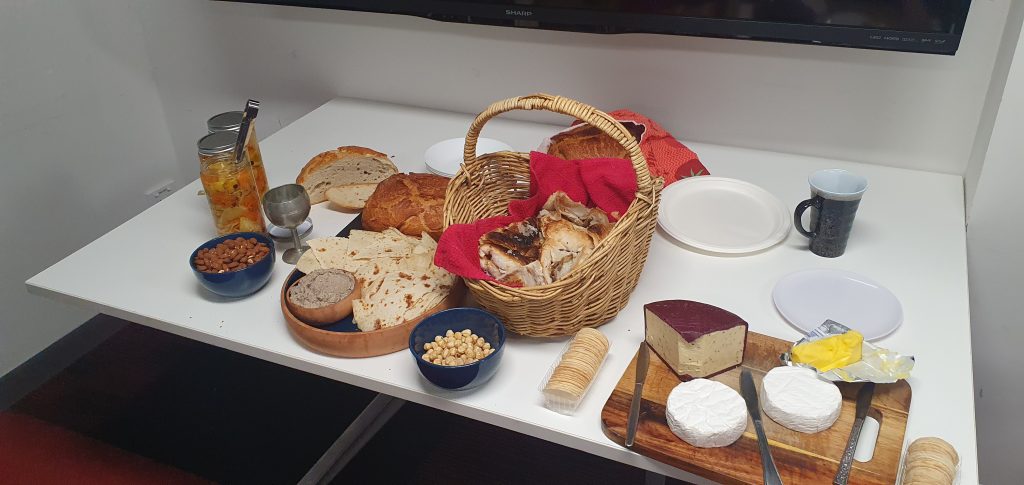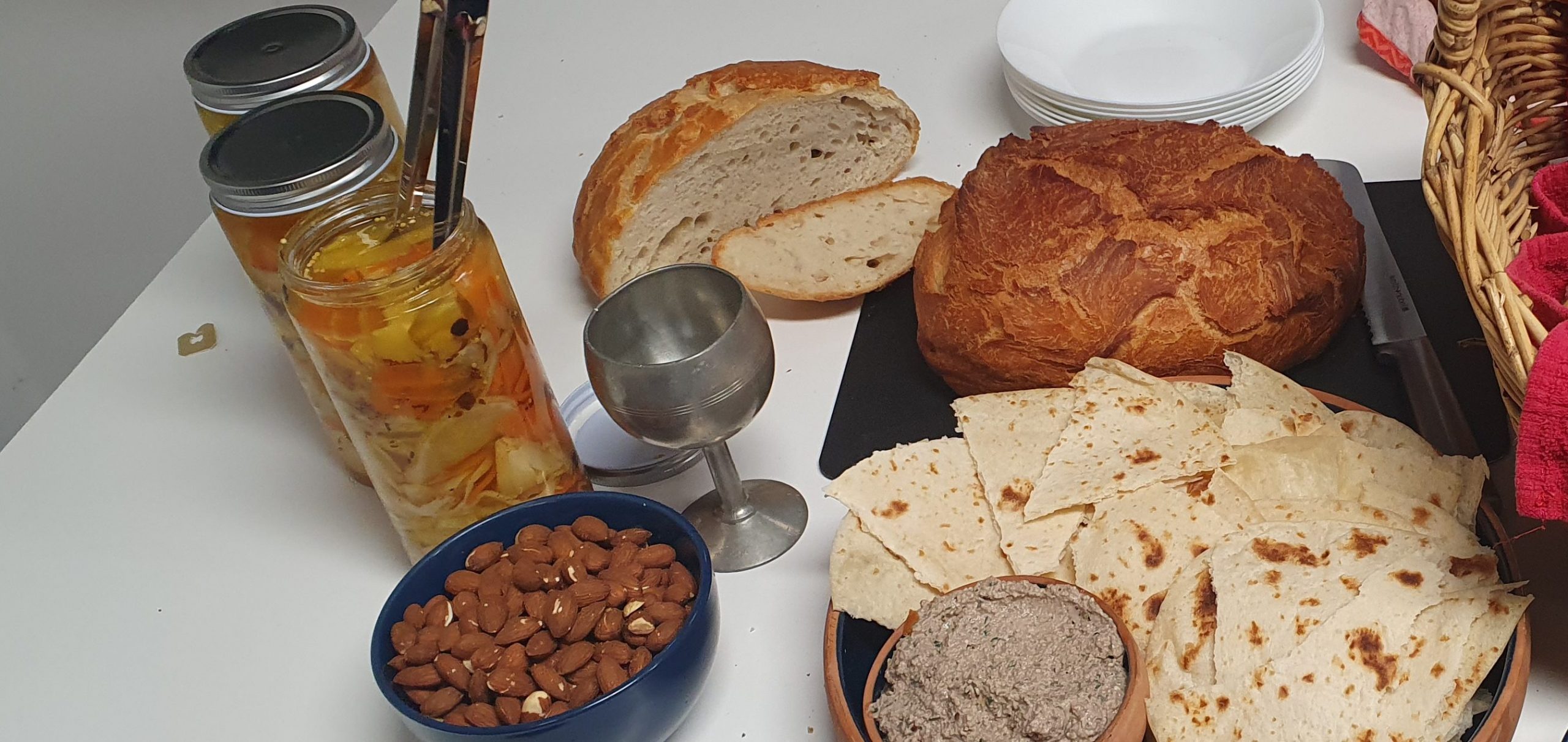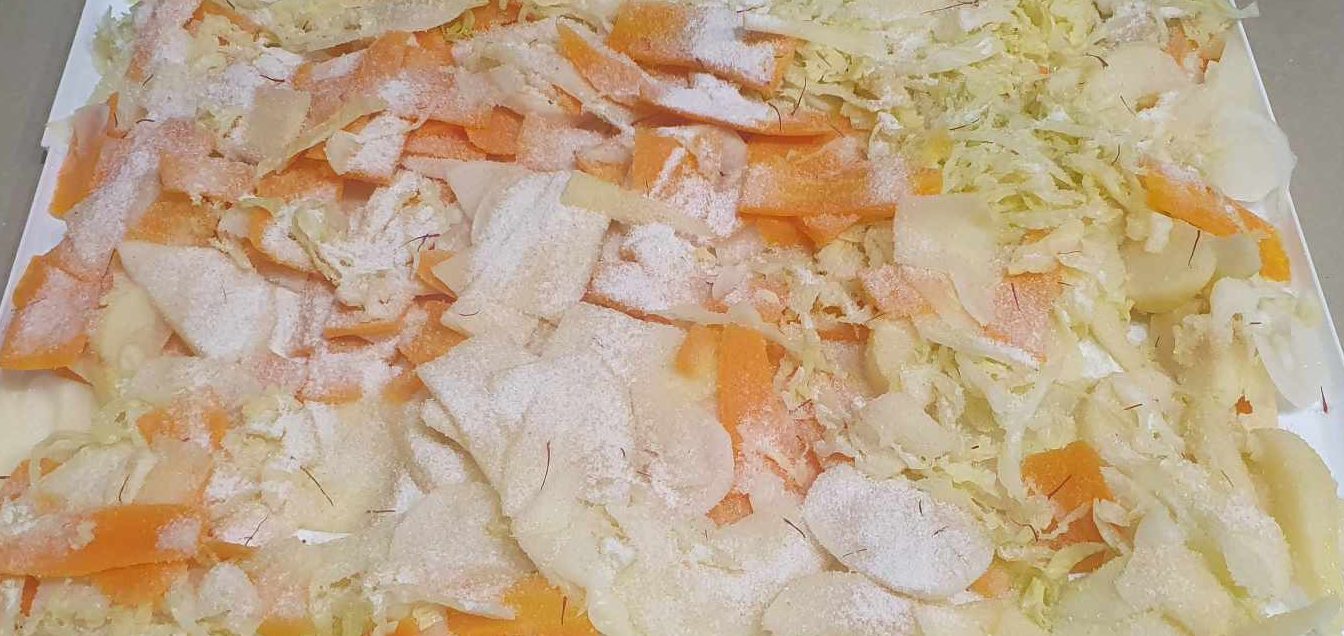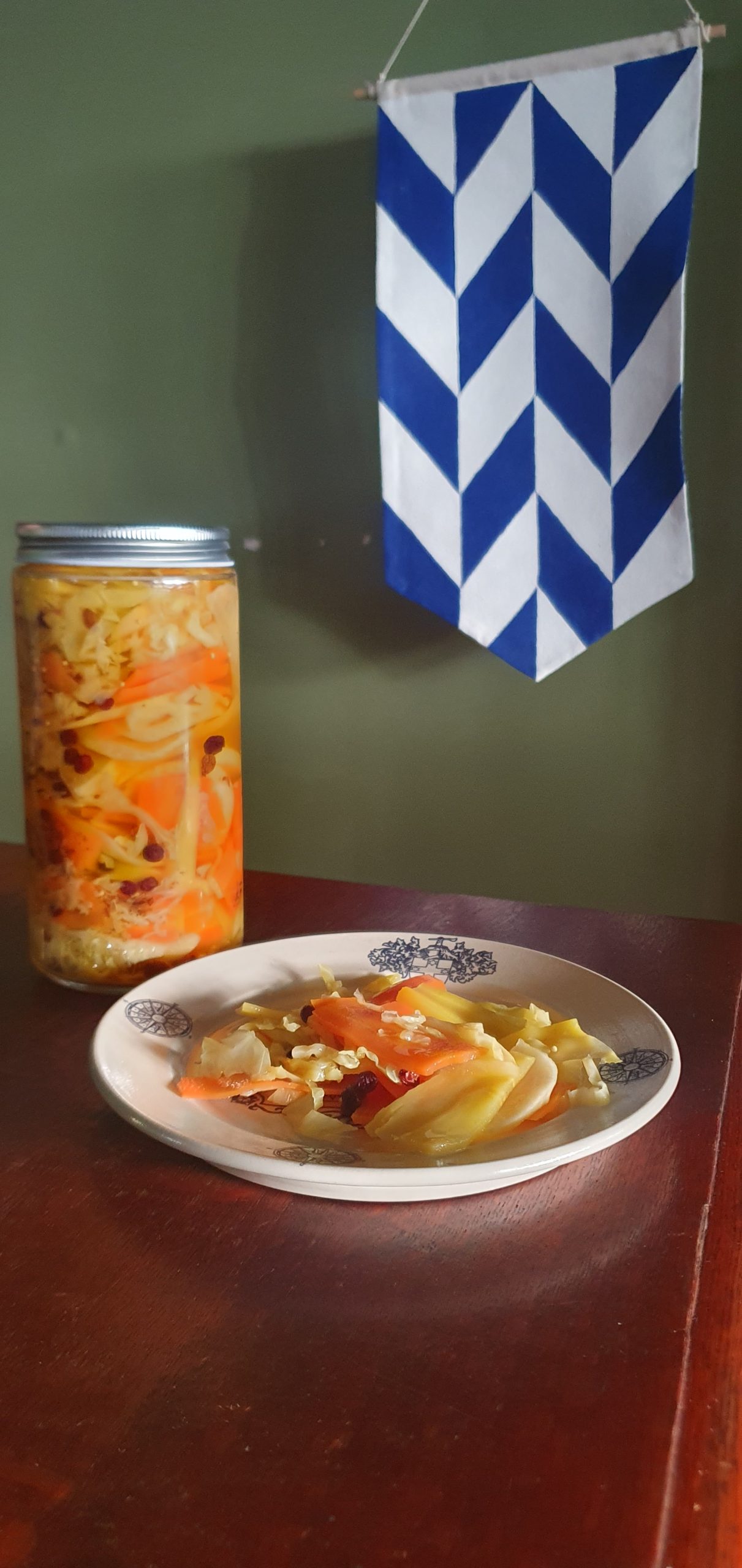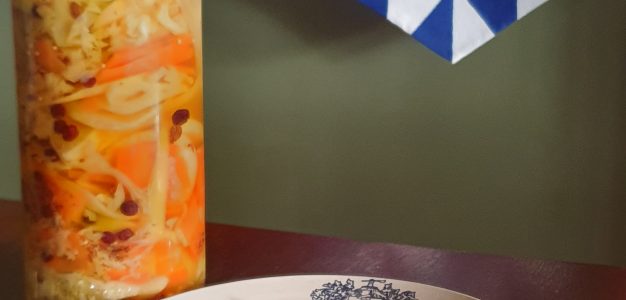This Mixed Pickle recipe comes from the 1390 English Cookbook Forme of Cury.
Etymology
The original name for the dish is “compost”, though the meaning of that word has changed dramatically to the present day. In Middle English, compost(e) referred to “a mixture of stewed fruit and/or vegetables; in compost, stewed or preserved” or even simply “a stew”, from Old Northern French compost, meaning a “composition”, whether a mixture of leaves, manure, etc. for fertilizing land (as with the modern English meaning) or a condiment. The term comes originally from Latin compositus, meaning “composed”. Compost is a doublet with the French compote and composite with were both borrowed into English.
Original Recipe
Take rote of persel, of pasternak, of rafens, scrape hem and waische him clene. Take rapes & caboches, ypared and ycorue. Take an erthen panne with clene water & set it on the fire; cast all thise therinne. Whan they buth boiled cast therto peeres & perboile hem wel. Take alle thise thynges vp & lat it kele on a faire cloth. Do therto salt; whan it is colde, do hit in a vessel; take vyneger & powdour & safroun & do therto, & lat alle thise thynges lye therein at night, other al day. Take wyne greke & hony clarified togider; take lumbarde mustard & raisouns coraunce, al hoole, & grynde powdour of canel, powdour douce & aneys hole, & fenell seed. Take alle thise thynges & cast togyder in a pot of erthe, & take thereof whan thou wilt & serue forth.
Pickled Salad. Take parsley, carrots, radishes; scrape and clean them. Take white radishes & cabbages, pared and cored. Take an earthen pan with clean water & set it on the fire; and put all these in. When they’ve boiled, add pears and parboil well. Take all these things out and let cool on a clean cloth. Add salt. When cooled, place in a container; add vinegar, powder, and saffron, and let sit overnight. Take Greek wine & honey, clarified together; take “lumbarde” mustard and whole currants, and cinnamon, “powdour douce” & whole anise seed, & fennel seed. Take all these things and place together in an earthen pot, and take from it when you need to, and serve.
Modern Recipe
This modern recipe layout is given by the British Museum, referencing Curye on Inglysch, IV. 103, where the original recipe can be found in print.
This can be made months in advance if preferred. If the vinegar-wine mixture is added hot as the recipe calls for, and the jar has a pressure seal, the pickle should be successfully canned. At this acidity, canning this pickle could very well make it shelf stable for years.
Ingredients:
- 900g mixed parsley roots, carrots, radishes and turnips
- 450g white cabbage
- 450g hard eating pears
- 6 tbsp salt
- 1 tsp ground ginger
- ½ tsp dried saffron strands
- 425mL white wine vinegar
- 50g currants
- 575mL fruity white wine
- 6 tbsp clear honey
- 1 tsp French mustard
- ⅛ tsp each of ground cinnamon and black pepper
- ¼ tsp each of anise and fennel seeds
- 50g white sugar
Method:
- Wash and peel the root vegetables and slice them thinly. Core and shred the cabbage.
- Put the vegetables into a large pan of water and slowly bring to the boil.
- Peel, core and cut up the pears and add them to the pan. Cook until they start to soften.
- Drain the contents of the pan and spread in a 5cm layer in a shallow non-metallic dish.
- Sprinkle with the salt, ginger, saffron and 4 tbsp of the vinegar. Leave, covered, for 12 hours.
- Rinse well, then add the currants.
- Pack into sterilised storage jars, with at least 2.5cm headspace.
- Put the wine and honey in a pan. Bring to simmering point and skim.
- Add the rest of the vinegar and all the remaining spices and sugar.
- Reduce the heat and stir without boiling until the sugar dissolves.
- Bring back to the boil.
- Pour over the vegetables, covering them with 1cm of liquid.
- Cover with vinegar-proof seals and store.
Events
We made this dish for the 2024 AGM. It had a very popular reception, and it’s quite cheap and simple to make, so I’m sure it will come back out in the future
